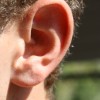What’s in a Dream?
 What did you dream of last night? Do you remember? You probably had several dreams last night. But what are dreams? Why do we have them? What is their purpose?
What did you dream of last night? Do you remember? You probably had several dreams last night. But what are dreams? Why do we have them? What is their purpose?
When your body enters sleep, your brain undergoes several sleep cycles, four to fives times a night. Each cycle has its own purpose. The cycles range from drowsiness and light sleep to deep sleep. After deep sleep, the body (or more technically the brain) will enter a stage called Rapid Eye Movement, abbreviated REM sleep. It is during this REM stage where many of our dreams happen.
Why do we dream? Many of them are strange, eerie, weird or impossible. They could be about being late to work because a big purple and blue spotted rhino decided to take up residence on the LIE (Long Island Expressway). Why do we have to watch or take part in these strange events while we sleep? Throughout history, people have sought meanings for their dreams. It’s been believed that these dreams can coincide with divination or contain messages from the Gods or the deceased. If you go to your local bookstore you could probably find what are called Dream Dictionaries- books that break down the meanings of dreams. Were you in front of the class naked? Well that might mean you’re unprepared for something. Did you dream of fire? Then it might be a warning of a dangerous or risky situation.
Ever have a dream catcher? You’ve probably seen one before. I have a little one beside my bed. Dream catchers can be linked back to Native American traditions. Dream Catchers are made from earthy materials and objects from the person it’s for. They are used to keep any negative dreams away from the  sleeping person. All positive dreams make their way through the hole in the center of the string web of the catcher and down the feathers to the person. Any negative dreams are stopped by the web and trapped. Those dreams then disappear at the first rays of the new morning sun.
sleeping person. All positive dreams make their way through the hole in the center of the string web of the catcher and down the feathers to the person. Any negative dreams are stopped by the web and trapped. Those dreams then disappear at the first rays of the new morning sun.
What’s interesting about dreams (other than the total bizarre-ness of them) is the physiological side of sleep. The body cycles into REM several times a night. REM occupies 20-25% of total sleep which equals about 90-120 minutes a night. During this stage, the brain is active. Brain scans of sleeping subjects show that around every 90 minutes, brain waves indicate that the person is “awake” yet clearly they are still asleep. In fact, when we enter REM sleep, the brain is very lively but our bodies undergo atonia, or paralysis of the muscles. The brain neurons become very active but neurotransmitters are completely shut down, preventing the stimulation of motor neurons and thus no movement can occur. The body literally paralyses you and makes you watch your dreams.
There are some individuals that have what is referred to as REM Behavior Disorder. In these individuals, atonia is absent. Without the paralysis of the muscles, these people actually act out their dreams.
So now why are we forced to have these dreams that can cause such strong reactions and emotions, yet are immobilized and unable to do anything about it? Why would our brains subject us to this?
There have been some theories. Sigmund Freud believed that dreams are forbidden urges that we are trying to hide. He also suggested that dreams act as practice for our brain. He said that bad dreams let the brain learn how to handle specific situations and emotions resulting from distressing experiences. Negative emotions are more common in our dreams than positive ones, whether it is panic, fright, sorrow, or anger.
Have you ever remembered a dream? Or remembered it once you woke up but forgot it a few hours later? At least 95% of dreams aren’t remembered. Chemicals in the brain that are required to turn short term memories into long term memories are also suppressed during REM. In order to remember a dream, it would have to be vivid enough to wake you during an REM stage or immediately after REM. Keeping a dream diary or journal often helps remember them as well. But without that, it’s often difficult.
Overall, it is known that dreaming (or at least REM sleep) is purely physiological. The brain stem signals REM sleep. Dreams are probably just responses to regular neural processes as we sleep and reflections in the subconscious.
Well, whatever dreams are, and for whatever reason we have then, they can be very important. Dreams have led to 2 Nobel Prizes, and the creation of several drugs and medicines. Despite how strange they are, I can live with them. At least they give me something to talk about in the office the next day (that is if I remember them!).
| Print article | This entry was posted by Jennifer Aiello on June 3, 2010 at 10:18 am, and is filed under G2C Online. Follow any responses to this post through RSS 2.0. You can skip to the end and leave a response. Pinging is currently not allowed. |









